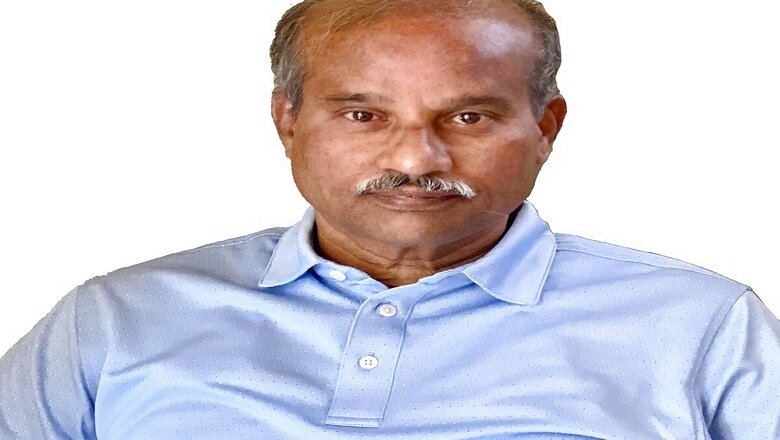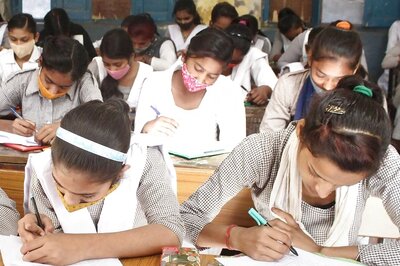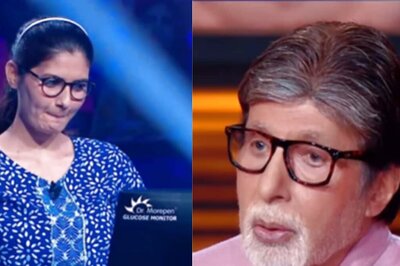
views
When 67-year-old Sankaranarayanan Sankarapandian tried to enter the exam hall to take the Graduate Aptitude Test in Engineering (GATE) 2021, he was shown the way towards the waiting area for parents and guardians. Talking to news18.com, the father of two and grandfather of three laughingly recalled, “The staff at the exam centre thought that I was accompanying a student but no one thought that I am the candidate.”
A retired teacher of mathematics at Hindu College, Tamil Nadu, Sankarapandian has emerged as the oldest candidate to have passed GATE 2021.
He took two out of 27 papers and has passed both of them with a score of 338 in mathematics paper and 482 in computer science. Most of the students take only one paper based on their specialisation, Sankarapandian had opted to take two papers and both of which were held on the same day in different shifts. While there is no upper age limit to appear in GATE, students in their mid-20s or early 30s make the most of the candidates appearing for the exam which is a gateway for admission to MTech courses and PSU sector jobs. Sankarapandian, however, is not aiming for any of them.
After having taught engineering students over two decades, he now aims at pursuing research that too in the field of augmented reality (AR), an emerging domain in the field of virtual reality. The 67-year-old wants to focus on the specific problem of occlusion. The technology might help in making holograms and other sci-fi features of placing real-world objects in the virtual domain into a reachable reality.
“Even if I would have failed, I would have tried again. My aim behind pursuing research is not a degree or a salary but knowledge,” says Sankarapandian
Talking to news18.com, the oldest qualifier for GATE 2021 said, “Even if I would have failed at the exam, I would have tried again. I don’t fear failure. It is a competitive exam in which about 17 per cent cleared the exam. I was not nervous as my motive to pursue research is not to get a degree or an attractive package, I want to research to know more, for the pursuit of knowledge.”
Even though his family — including his wife who is a homemaker, an IIM-graduate son, a married daughter settled in the US, their spouses and children — often expresses that he can join a cushiony corporate job. But Sankarapandian believes that through research he would not help him satisfy his yearning to “learn new things”. He also wants to motivate his grandchildren, he said.
To crack the exam, said Sankarapandian, it took no more than 30 days of brushing up of concepts and exam pattern. “I had appeared for GATE 35 years back in 1987 after which I got admission to IIT-Kharagpur, however, the paper pattern was very different from then and now. At that time, the exam was in the written mode. It had two papers of which the second was a subject-specific subjective exam. There was no reference to acquainting oneself with question paper patterns before the exam. The result too would be declared after months. Now, the exam is a computer-based objective test. One can appear for more than one subject based on their specialisations. There is a provision to appeal if one finds the answers by organisers are not correct. The examination system has become very fast and comfortable,” he said.
Suggesting his younger friends the simple trick to crack GATE he said, “Accept what you don’t know”.
“Since GATE has negative marking and qualifying marks needed per subject are about one-fourth. In one question, they assess multiple concepts, one might be familiar with a concept or two but not familiar of how to solve this problem, it is better to accept and leave that question. Even if a student can master a section of a syllabus and leave a portion, they would be able to clear the test,” he said.
Read all the Latest News , Breaking News and Ukraine-Russia War Live Updates here.



















Comments
0 comment